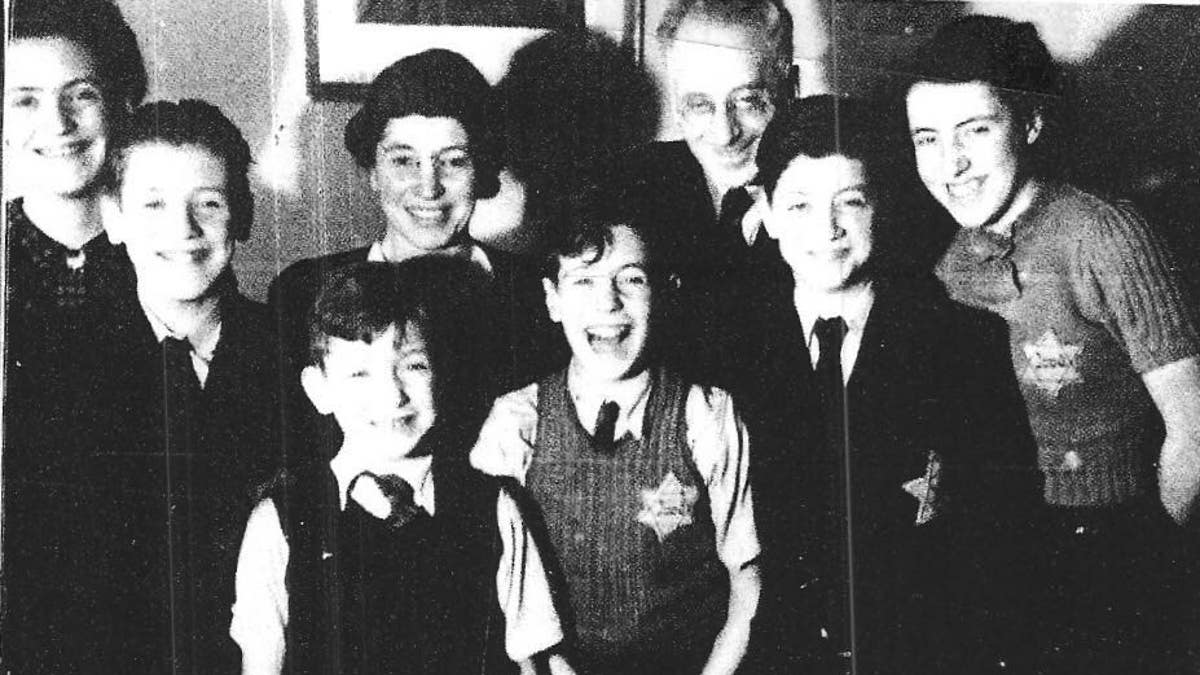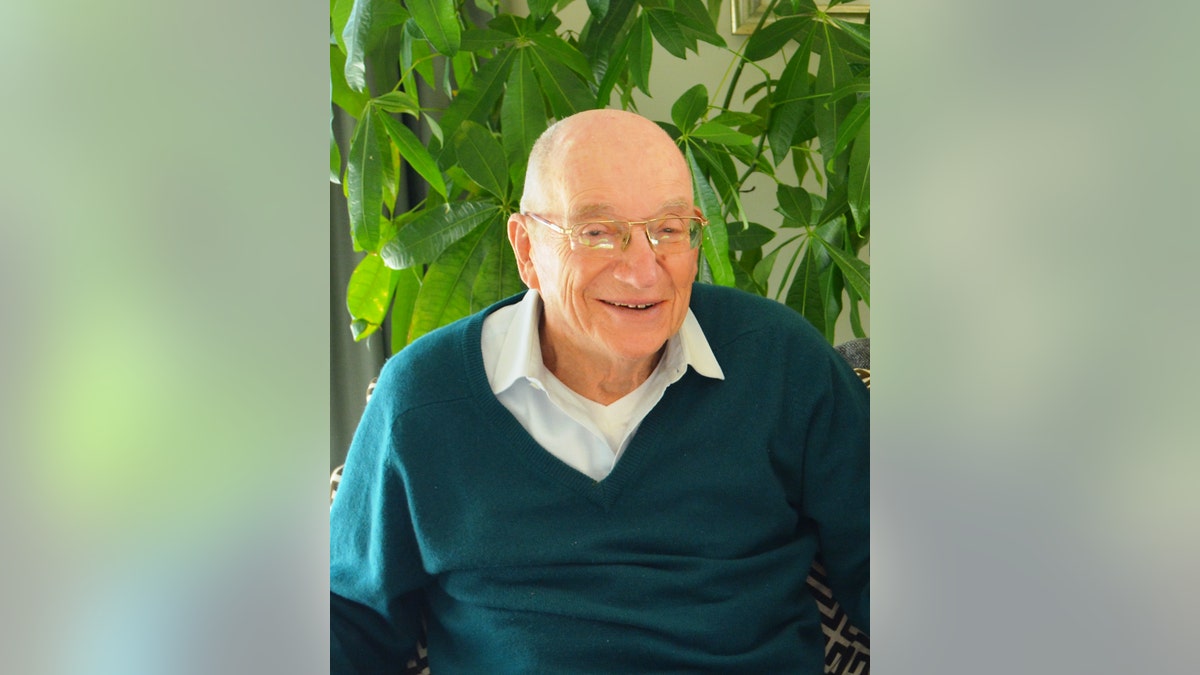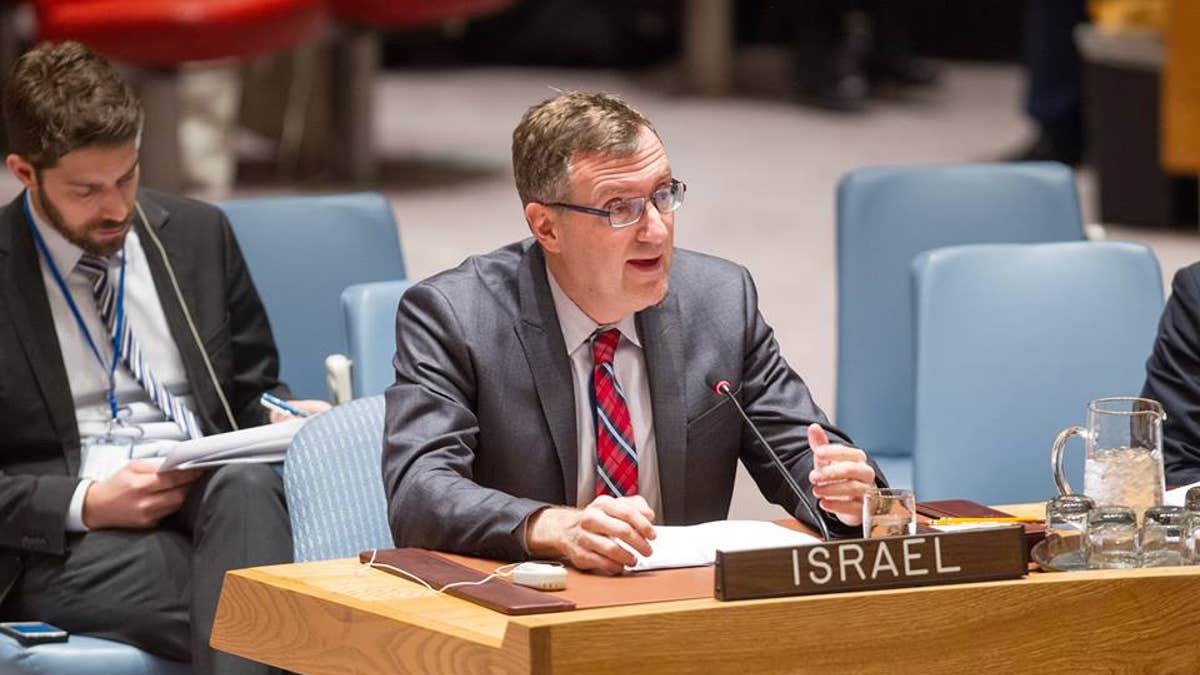
The author's family during World War II. (Courtesy of the author)
As an Israeli diplomat to the United Nations, the annual Holocaust Memorial ceremony has always had profound resonance. This Wednesday, the U.N.'s Holocaust Commemoration will have special personal significance. For, this time it will be my father, Haim Roet, a Holocaust survivor from the Netherlands, who will speak from the podium of the General Assembly.
My father was born in Amsterdam, the youngest of six children. His parents were modern middle class orthodox Jews whose roots in Holland can be traced back to the 17th century

(Haim Roet, Holocaust survivor (Courtesy of the author))
When my father was 7-years-old the Germans marched into Holland. Two years after the Nazi invasion he and his family were forced to move to the Ghetto.
In September 1943, on Rosh Hashanah eve (the Jewish New Year), the Waffen SS knocked on the door of his sister’s apartment. Before being taken away the two sisters were able to warn their parents.
With the help of the Dutch resistance my father and his brothers were hidden at different places without any contact with each other.

(Ambassador David Roet (Courtesy of the author))
Some may doubt that in such dire circumstances one person can make a difference. But in Nieuwlande, there was such an individual. His name was Johannes Post, a farmer and father of 7 children who organized the efforts which saved over 100 Jews, including my father.
Johannes Post, a hero of the Dutch resistance, was later captured and executed by the Nazis.
After two months of hiding, the Resistance found my father a new place with a baker’s family. They risked their lives and the lives of their own families in order to save a stranger.
A year and a half after being torn from his family, thinking he was all alone in the world, my father was reunited, in the middle of the night, with his parents and my surviving brothers.
That same night, he was told that his sisters, his grandfather and nearly all of his family had perished.
From the podium of the General Assembly hall, my father will read from a postcard sent by his sister Adela on March 12, 1945, a few weeks after Auschwitz was liberated:
"Dear loved ones, after a most terrible year in the Birkenau concentration camp, my sister Rosientje died in Auschwitz. I was not present. Grandpa and Uncle Isaac were sent to the gas chambers upon arrival on February 2, 1944; Aunt Riek died on April 21, 1943.
"I survived because of willpower, the help of God, the unforgettable home memories of Friday nights and the holidays. Looking everywhere for (my) father, mother and brothers. Looking for assistance to return home soon, to see each other very soon, as soon as possible -- Adela”
Although liberated from the death camp, Adela’s frail body could not recover to keep on living. Adela was 20-years-old when she died.
During the last 30 years my father has been vigorously engaged in social activities to commemorate the Holocaust and to improve society.
He is the initiator of the worldwide Holocaust memorial project “Unto Every Person There is a Name,” Chairman of the Committee for the Recognition of Jews who Rescued Jews and the founder Tseela, an NGO that promotes the improvement teams methodology for dealing with major macro-social problems and assisting NGOs.
My father, who, after all he went through, remains forever optimistic in the ability to make a difference, will call member states of the United Nations to work together to make sure genocides will be stopped and will end his speech with these words:
"70 years after the Holocaust, there are less and less survivors who can tell their story. These stories must continue to be told.
"As a society we have an obligation to remember and understand the lessons of the Holocaust so that they serve as a warning to where blind hate and racism leads."








































